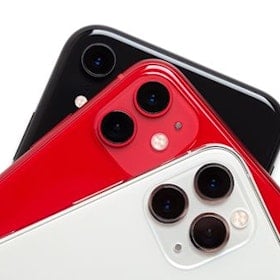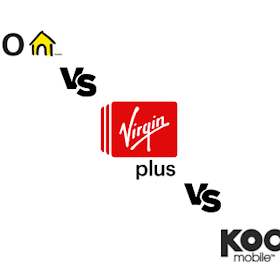
4.5/5
The term phablet is losing its appeal, but the pocket-busting smartphone cum tablet devices seem only to be raising in popularity. If you’re in the market for a Big Phone, you’ve never had as many options. Samsung’s Galaxy Note is in its fourth iteration, the Google Nexus 6 is of a similar size. Even Apple, whose late CEO took pains to explain why a 3.5-inch screen was the perfect size, now has a 6-inch model has a palm-stretching iPhone on store shelves.
Huawei is tossing in its own 6-inch wunderkind into the now boiling pot, hoping to be the most delicious dumpling on show as you hover your chopsticks over the bubbling, foaming soup. But there are questions to be answered, like where is its stylus? What can it do that a smaller phone can’t?
| Pros: | Cons: |
|
|
On the outside
While wholly unoriginal, the Mate 7 is a beautiful handset. Chiseled out a aluminium alloy, much like the HTC One M8, and in contrast to the army of cheaper phones Huawei has produced in the past, the Mate 7 screams class .

At 185g and 157mm tall, the Mate 7 is a Big Phone. Yes, it can turn awkwardly in pants pockets and stifle a lunge or bend. In looser shorts with deeper pockets, we found the Mate 7 constantly wriggling free, to be found later on the driver’s side seat of the car, or in the groove between cushions on the couch. But, as Huawei insistently reminded journalists when showing the phone, it is still slightly shorter than an iPhone 6 Plus and the same size as the Note 4, despite having a larger screen.
The size comparison with the Note 4 is impressive and is accomplished by Huawei using the thinnest bezels along the longest lengths of the 6-inch screen. In fact, with the screen off it is nearly impossible to see where the screen ends and the bezels begin. One of the upsides to having thicker bezels is that it helps to create contrast so that our eyes perceive stronger colours in the display. The IPS LCD screen used in the Mate 7 needs no such trickery or illusion. This screen is absolutely top-notch, as good as anything you’ll buy from the established brands. A small speaker on the back is OK for watching videos without headphones, but isn’t a patch on the front-facing speakers found on HTC and Motorola phones.

Our only criticism of the 6-inch screen, and the Mate 7 in general, is that Huawei doesn’t offer any specific utility for the larger, and more cumbersome, design. There’s no special sketching or note-taking apps, no special e-reading mode. The same criticism can be levelled at Apple’s iPhone 6 Plus, but owners of Samsung’s Galaxy Note 4 rave about the stylus included and the way it simplifies certain common tasks.

On the back of the phone, under a camera lens, Huawei include a fingerprint sensor. This is far from an original idea, but it is well executed. The small metal pad can read fingerprints at any angle regardless of the position you used when you recorded the print at on first use. It’s primary use is for unlocking the phone, which can be done with a finger on the pad, and without having to turn the phone on first. It’s a small step forward, but a handy one.
Can you feel me?
Huawei has designed a very attractive and easy to use system to lay over the top of Google’s Android called the Emotion UI, or EMUI. Now in version 3.0 and Huawei seem to be hitting its stride here. EMUI is sleekly designed and follows the iOS home screen layout of putting all installed apps across scrollable home screen pages. If you’re coming from an iPhone, you’ll find the similarities easy to acclimatise to.

As with previous versions of EMUI, version 3.0 includes a robust Themes settings and a half-dozen preset theme options. These overhaul quite a bit of the look and feel of the system, replacing wallpapers, icons, fonts and more.

Huawei also pack in a few other useful and rather unique applications. Phone Manager does as described and manages performance, security and an harassment filter for pestering exes and unwanted telemarketer calls. There’s also an NFC Tag manager tucked away in the settings which can control key functions of the phone when the handset is pressed to a blank NFC tag.
Camera
We’ll admit to being surprised by the camera performance here. Huawei hasn’t impressed in photos before the Mate 7, but the images we’ve taken during this test period have been sharp and colourful (maybe a little too colourful). We did find the highlights did blow out in a few of our shots, but overall we’ve been impressed.
There’s a few nifty tricks to play with, too. An “all-focus” mode takes several shots in a burst with varying focus points so you can re-focus your photo later in the gallery. It doesn’t work nearly as well as a Lytro camera, but it is a but of fun. You can also take a photo when the phone is standby mode by double-pressing the Down Volume key. This lights the phone up and fires the shutter, then displays the resulting photo and the time it took to take it. On average, the whole process takes about 1-second.
Sample photos:




Under the hood
Like a vampire-hunting cheerleader, the Mate 7 might look like other phablets on the surface, but it is completely original inside. Huawei has sunk a bunch of R&D dollars into designing its own computer hardware, and the Mate 7 includes the most powerful of these homegrown chips to date. An octa-core HiSilicon Kirin 925 processor is the beast that keeps this machine whirring, with four 1.8GHz cores and four lower-powered 1.3GHz cores. There’s two variants to be aware of: one with 2GB RAM and 16GB storage and a beefier model with 3GB RAM and 32GB internal storage. Both have micro SD card readers accepting cards up to a huge (and expensive) 128GB.

Heavy users will salivate at the notion of a phone with a 4100mAh capacity battery, as the Mate 7 does. While this is the biggest battery in a smartphone now (the Note 4 has a 3220mAh battery, for comparison) we didn’t notice a huge improvement in battery life. Not that battery life is bad, the Mate 7 easily lasts 2 days, but with such a big battery we were hoping for better still.
Overall
It’s big, beautiful and packs a massive battery: the Huawei Mate 7 is among the year’s best phones. It’s remarkable just how much Huawei can pack into this package and still manage to keep the price significantly lower than similar products from the bigger names.
There is very few things that we would change about the Mate 7. We do love the IR Blasters in other phones, used for changing the channel on your TV, and we wish the enormous battery gave us even more time between charges. These are minor quibbles in the face of what's on offer here.
Find Better Phones and Plans
Hundreds of cell phone plans unpacked. All the facts. No surprises.




































